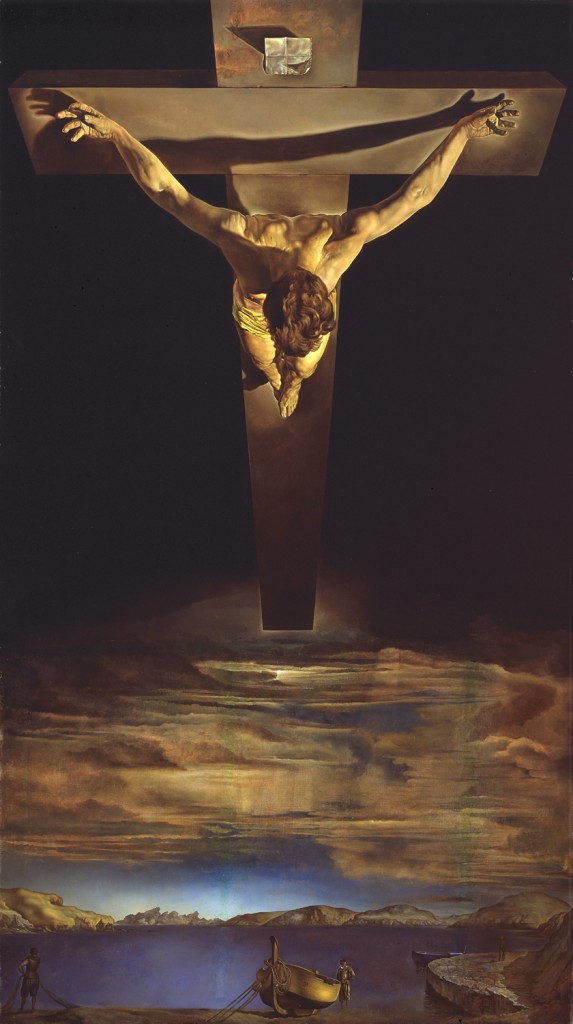Boston Cecilia opens season with an affecting “St. Matthew Passion”

"Christ of St John of the Cross" by Salvador Dali, 1951.
Through his 44-year tenure as music director of Boston Cecilia, Donald Teeters has become something of an icon in Boston’s classical music community. This season is his final one with the group, and it is set to be marked with all due fanfare in celebration of Teeters’ long career.
For Boston Cecilia’s season opener on Sunday afternoon at Jordan Hall, the group performed Bach’s St. Matthew Passion, even enlisting the help of another choral ensemble, Musica Sacra.
The St. Matthew Passion is one of only two Bach works in the genre that have survived in full. The setting of Jesus’s last days is one of Bach’s great masterpieces, an epic and complex score that calls for two choirs and orchestras as well as solo voices.
Given the significance of this music season for Boston Cecilia, the programming decision was an apt one, and the result was a fulfilling and intelligent performance that put substance firmly before flash.
Though he was in the company of a group of talented soloists, tenor William Hite was a standout as the Evangelist. His German diction was impeccable, and he showed outstanding dynamic control throughout. Hite was also responsible for the single most beautiful moment of the entire afternoon: singing a tender falsetto over orchestral silence in the final bars of Und ging heraus und weinete bitterlich, in those few words, he seemed to emote all that is human and tragic.
Other superb solo work was delivered by baritone Bradford Gleim, who sung the part of Peter, and by tenor Aaron Sheehan. Gleim’s rich, expressive voice was consistently impressive and his restraint only reinforced his vocal charisma. Sheehan’s duet with the viola de gamba in the tenor aria of the second section was memorable as well.
Ronald Williams, who sang the part of Jesus, possesses a strong bass, but did not always articulate his words clearly. The other soloists were admirable including bass Robert Honeysucker, alto Thea Lobo, and soprano Jolle Greenleaf.
The Boston Cecilia and Musica Sacra vocal ensembles not only supported these soloists but also had their fair share of moments in the spotlight. Teeters never imposed his leadership aggressively on them and he never had to. The choirs responded with nuance to Teeters’ every subtle movement. The phrases ending in hard German consonants were executed extremely tightly, as were the myriad fortissimo choir entries in the piece.
The unity of the ensemble in these moments were perhaps more striking because at certain moments, a vital urgency and dramatic tension seemed to lag.
Yet triumphing at the end of the day was the fact that Boston Cecilia has committed itself to a faithful representation of Bach’s vision. From the well-tuned oboe da caccias to the insistent and striking period basses and bassoons, the Boston Cecilia period instrument orchestra were completely in sync with the singers and conductor, projecting beautifully one moment and gracefully receding for soloists the next.
It seems that even though retirement beckons, Maestro Teeters isn’t quite ready to stop what he’s been doing for forty-four years: providing some of the most exquisite musical experiences available to Boston’s music community.
Posted in Performances




